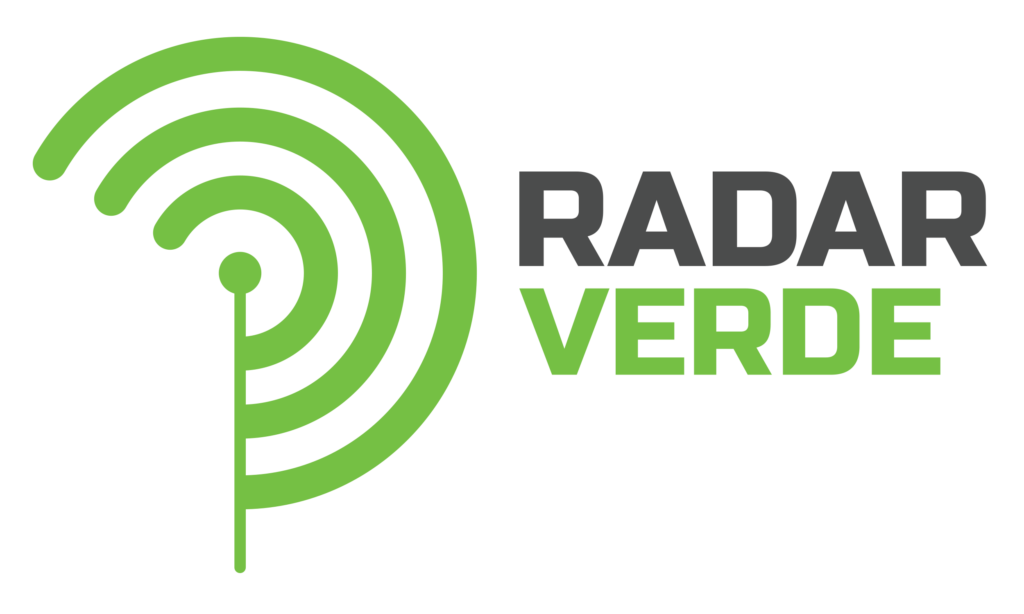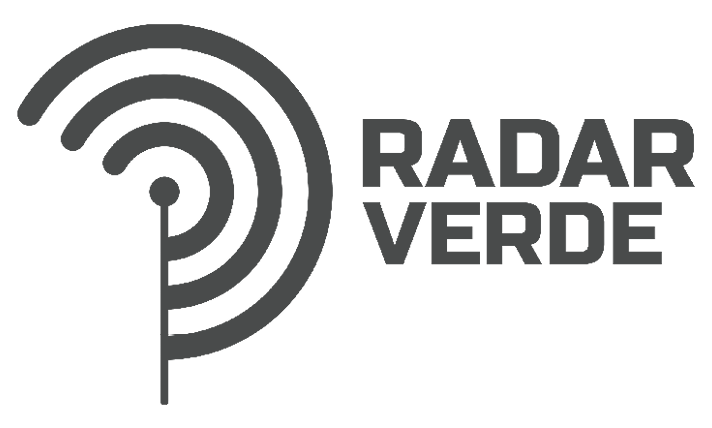
A new indicator, Radar Verde, invited 90 slaughterhouses and 69 retailers to prove that their policies guarantee that the beef they buy and sell is not associated with deforestation in the Amazon. Only 5.5% of the companies accepted to participate in it this year. None of them authorized the disclosure of their final classification
Which companies can guarantee that the beef they buy and sell – and that reaches consumers – is not associated with deforestation in the Amazon at any stage of production? To answer this question, Radar Verde, a new indicator that evaluates the effectiveness of slaughterhouses and supermarkets’ production chain control policies, is presenting today the results of its first edition. Imazon (Amazon Institute of People and the Environment), an international reference research institution, and O Mundo Que Queremos Institute (OMQQ), an organization focused on social and environmental projects, created the indicator’s methodology, the first of public access on the issue in Brazil.
The survey was carried out for the first time in 2022 and will be annual. This edition’s results revealed the non-participation of companies and the refusal of those who responded to the survey to have their performance publicly disclosed. Among the slaughterhouses invited, 94.5% did not participate in the survey. That 5.5% that responded did not authorize the disclosure of their results. The same happened with retailers: 96% of the supermarkets invited did not respond. The 4% who agreed to participate did not authorize the publication of their results. “The way each slaughterhouse and supermarket responds to the demand for transparency and proof is a piece of information that consumers, investors and major corporate clients must know and that must be taken into account when making decisions,”says Alexandre Mansur, project director at OMQQ. The complete list of companies that did not respond and did not authorize the disclosure of their results to Radar Verde is available at the end of this text.
Radar Verde’s team identified 113 active slaughterhouses in the Brazilian Amazon region, eligible to participate in the indicator. Of the total, 90 companies had some form of public contact (email and/or telephone number), to which an invitation was sent to respond to the questionnaire. Five of the 90 companies agreed to participate in the survey and completed the questionnaire. They received the evaluation of their production chain control policies, created by Radar Verde’s team, but did not authorize the public disclosure of their final classification in the indicator.
To evaluate supermarkets’ production chain control policies, Radar Verde’s team listed the 50 largest retailers in the country, according to the 2021 ABRAS ranking (Brazilian Association of Supermarkets). The 19 largest supermarkets in the Brazilian Amazon were also invited to participate. Of the 69 retailers contacted by Radar Verde’s team, three agreed to answer the questionnaire. Like the participating slaughterhouses, they also received an evaluation of their production chain control policies from Radar Verde’s team. Still, they did not authorize the public disclosure of their final classification in the indicator.
The criteria that make up Radar Verde are based on three pillars. The first is the existence of a policy for the responsible purchase of cattle or beef. The second is the quality of the policy and its potential to contribute to reducing deforestation. The third is the demonstration of the level of implementation of the policy by the company. “Even if companies cannot have full control of their suppliers, Radar Verde evaluates the degree of effort and how distant they are from guaranteeing the final objective, which is 100% deforestation-free beef,” says Ritaumaria Pereira, executive director at Imazon. According to the companies’ responses to a questionnaire, each slaughterhouse and supermarket is classified into one of five categories:
- Green: The score indicates that the effectiveness of the policy is very high
- Light Green: The score indicates that the effectiveness of the policy is high
- Yellow: The score indicates that the effectiveness of the policy is intermediate
- Orange: The score indicates that the effectiveness of the policy is low
- Red: The score indicates that the effectiveness of the policy is very low
Brazil is the second largest world producer and the largest exporter of beef. The country produces about 15% of all of the beef consumed globally. Studies suggest that the activity can work as one of the drivers of deforestation in the Amazon. A survey by Mapbiomas shows that pasture areas have increased threefold in the Amazon over the last 30 years. Today, they occupy 13% of the biome. Almost half of the Brazilian herd (43%) is concentrated in the largest tropical forest on the planet. Between 1990 and 2020, the cattle herd in the region grew 256% compared to only 3% in the rest of the country.
Due to the way the beef production chain is structured in Brazil, there is a lack of public information to guarantee that the beef consumed in the country and exported is not associated with deforestation during its production. The cycle is long and fragmented. These animals can go through several farms while raised, from birth to slaughter. Radar Verde analyzes whether slaughterhouses and supermarkets are able to guarantee that the beef they buy and sell has not gone through a farm that was deforested in any of the connections in this chain. This includes slaughterhouses and supermarkets’ direct suppliers (that is, who they buy from) and their indirect suppliers (who the suppliers of their suppliers buy from).
Next year, there will be a new edition of the survey prepared by Radar Verde. All companies will be invited again. The expectation is to raise their awareness of the importance of transparency in their production chain control policies as a tool to curb deforestation in the Amazon. “Radar Verde is an opportunity for companies to demonstrate responsibility for their operations,” says Alexandre Mansur, from OMQQ. “It is already known that it is possible to increase livestock production in the Amazon without cutting down any trees,” asserts Ritaumaria from Imazon. “Consumers deserve to know which companies guarantee zero deforestation in their production chain. Radar Verde wants to be a shortcut to that piece of information.”
Radar Verde is funded by the Norway’s International Climate and Forest Initiative (NICFI) and the Institute for Climate and Society (iCS).
Lista Dos VAREJISTAS convidados pelo Radar Verde
Nenhuma das empresas participantes da pesquisa Radar Verde no ano de 2022 autorizou a divulgação de seus respectivos índices.
- A Angeloni & Cia
- ACDA Importação e Exportação
- AR Filho & Cia
- AS Aguiar e Cia
- Am/Pm Comestíveis
- Assaí Atacadista
- Atakarejo Distribuidor de Alimentos e Bebidas
- Carrefour
- Casa Nossa
- Cema Central Mineira Atacadista
- Cencosud Brasil (Grupo)
- Cia. Beal de Alimentos (Festval)
- Comercial Zaffari
- Comercial Zaragoza Importação e Exportação
- Companhia Sulamericana de Distribuição
- Companhia Zaffari Comércio E Indústria
- Coop – Cooperativa De Consumo
- Covabra Supermercado
- D’avó Supermercados
- Del Moro & Del Moro
- DMA Distribuidora
- Formosa Supermercados & Magazine
- Frios Vilhena
- Giassi e Cia
- Gmgb Holding e Participações (Supermercados Mambo)
- GPA
- Grupo DB
- Hilário José Weiller (Ouro Verde)
- Irmãos Boa
- Irmãos Muffato & Cia.
- Jad Zogheib & Cia. (Confiança Supermercados)
- Juba Supermercados
- Koch Hipermercado
- L&G Alimentos do Brasil
- Líder Comércio e Indústria
- Luiz Tonin Atacadista e Supermercados
- MA Silva e Silva
- Mart Minas Distribuição
- Mateus Supermercados
- Multi Formato Distribuidora (Supermercado Super Nosso)
- Mundialmix Comércio de Alimentos
- Organização Verdemar
- Pague Menos Comércio de Produtos Alimentícios
- Quartetto Supermercados
- RMC Comércio De Alimentos
- Rachel Loiola & Cia.
- Realmar Distribuidora (Extrabom)
- São Cristóvão Investimentos e Participações (Big Box Supermercados)
- Savegnago Supermercados
- Sdb Comércio de Alimentos (Comper)
- Silva e Barbosa Comércio de Alimentos
- Sonda Supermercados Exportação e Importação
- Supermercado A. Luzitana
- Supermercado Bahamas
- Supermercado Cidade
- Supermercado Cometa
- Supermercado Guará
- Supermercado Nordestão
- Supermercado Paulista
- Supermercado Queiróz
- Supermercado Superpão
- Supermercados BH Comércio de Alimentos
- Supermercados Cavicchiolli (Supermercado São Vicente)
- Supermercados Irmãos Lopes
- Supermercados Jaú Serve
- Torre e Cia. Supermercados
- Unidasul Distribuidora Alimentícia
- VMJ Comércio de Produtos Alimentícios (Mega Supermercado)
Lista Dos Frigoríficos convidados pelo Radar Verde
Nenhuma das empresas participantes da pesquisa Radar Verde no ano de 2022 autorizou a divulgação de seus respectivos índices.
- 163 Beef Indústria e Comércio de Carnes
- Abatedouro de Bovinos Sampaio
- Abatedouro Independência
- Abatedouro Monte Cristo
- Abatedouro Ro
- Abatedouro São Jorge
- Agrafoods
- Agropam – Agricultura E Pecuária Amazonas
- Alexandrino
- Amazonboi
- Amazônia Alimentos
- Arrudão
- Ativo Alimentos
- Beef D’ouro
- Boi Bom
- Boi Brasil
- Boi Verde
- Bovinorte
- Carnes Boi Branco
- Casfrisa
- Comcarne Comercial de Carne (Fribal)
- Cooperativa dos Produtores de Carne e Derivados de Gurupi
- CRO Ribeiro
- Fribev – Frigorífico Bela Vista
- Frical Frigorífico
- Frican
- Frig
- Frigo 10
- Frigoboi
- Frigobom
- Frigocal
- Frigodias
- Frigoestrela
- Frigol
- Frigoli Alimentos
- Frigolider
- Frigomil Frigorífico Mil
- Frigonelore
- Frigonort
- Frigoporto
- Frigordo Indústria Comércio Importação e Exportação
- Frigorífico 2r
- Frigorífico 3m
- Frigorífico Agro Açailândia
- Frigorífico Alemão
- Frigorífico Altamira
- Frigorífico Araticum
- Frigorífico Areia Branca
- Frigorífico Castanheira
- Frigorífico Dona Raimunda
- Frigorífico Fortefrigo
- Frigorífico Frigoraça
- Frigorífico Jatobá
- Frigorífico Krause
- Frigorífico Monte Verde
- Frigorífico Norte Carnes
- Frigorífico Nosso
- Frigorífico Pantanal
- Frigorífico Paraiso
- Frigorífico Redentor
- Frigorífico Rio Maria
- Frigorífico Roma
- Frigorífico Rondônia
- Frigorífico Rondonópolis
- Frigorífico Rs
- Frigorífico São José
- Frigorífico Savana
- Frigorífico Valencio
- Frigorífico Ypê
- Frigosena
- Frigotefé
- Frigovale do Guapore
- Frigovan
- Frigoverde
- Frinorte Tomé-Açu
- Frisacre Frigorífico Santo Afonso do Acre
- Golden Imex
- Indústria Frigorífica Boa Carne
- Intercontinental Foods – Comércio de Alimentos
- Irmãos Gonçalves Comércio e Indústria
- JBS
- JP
- JV Pessoa (Rio Branco)
- LKJ – Frigorífico
- Mafrico
- Mafrimar
- Marfrig Global Foods
- Masterboi
- Matadouro Braga Empreendimentos (Frimap)
- Matadouro E Frigorífico Aliança
- Matadouro Frigorífico Amazônia Empreendimentos (Friaap)
- Matadouro Juba
- Mercurio Alimentos
- Mfb Matadouro Frigorífico Bezerra
- Minerva
- Naturafrig Alimentos
- Nova Carne
- NR Comércio de Frios
- Nutrifrigo Alimentos
- Organizações GC
- Pantaneira Indústria E Comércio de Carnes e Derivados
- Plena Alimentos
- R Batista
- RC Moreira Costa (Frical)
- RE Ribeiro Soares
- Refúgio
- Rio Beef Frigorífico
- Sf Indústria e Comércio de Carnes
- Socipe
- Total
- Vale do Tapajós (Frivata)
- Vale Grande Indústria e Comércio de Alimentos





